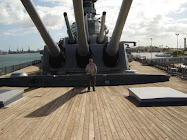Reviewed by Mary Lydon Simonsen, author of Pemberley Remembered
The title of this novel, Scarecrow in Gray, refers to the soldiers of the Confederacy who are reduced to fighting in uniforms that are little more than rags. Because there is so little food left in the bleak landscape of what was once the Confederate States of America, these undernourished men fight one hopeless battle after another in an unwinnable war, and their lack of food has given them the appearance of the scarecrows guarding their now abandoned farms.
This is the story of Francis Marion Yelton who did not go off to war. The war reached into the distant mountains of North Carolina, carrying him away from his family and farm into the maelstrom of the last desperate months of the Civil War. The author, a descendant of Francis Yelton, a private in a Confederate regiment, has expanded on family lore to tell the story of a man who probably realized the war was lost even before he arrived in training camp. From the filth and tension of an Army camp to the terrors of Petersburg and the long hard road to Appomattox Courthouse, Barry Yelton recreates with measured prose the desperate battles of the closing months before the Confederate surrender in April 1865.
In the midst of unspeakable horrors, he keeps his character tethered to a saner world by frequent references to the natural beauty around him: “The night it was a vast obsidian dome infused with sparkling points of light.” Mr. Yelton has the soul of a poet, but his beautiful prose is not at the expense of detailed and horrific descriptions of the battlefield where brave, but outnumbered, Confederates await the next Yankee onslaught: “Then we heard it, the low roar of the blue ocean, coming out of the woods, then the pounding of thousands of horses’ hooves.”
Scarecrow in Gray is reminiscent of Cold Mountain and The Black Flower and is a compelling tale of one man’s attempt to do his duty while preserving his humanity.
Thursday, May 29, 2008
Subscribe to:
Post Comments (Atom)








2 comments:
A "compelling tale of one man�s attempt to do his duty while preserving his humanity"...this balance...the demonstration of how to battle this out within oneself...is so needed.
Thank you for writing such a nuanced novel.
Janet Riehl
www.riehlife.com
Hey, Barry,I have to read your book now. My friend, author Janet Elaine Smith, posted a comment about your blog.
The War was winnable by the South, but two factors determined the ultimate defeat of the Confederacy,Gen. Lee, and President Davis. Both were trained in the Napoleonic method of warfare, "standup and attack the center."
Gen. Jackson realized this was futile becauseof the invention of the Minnie' Ball by French officer ,Claude E'tienne' Minnie'.
Five times Jackson sent a letter to Gen. Lee by a staff officer detailing how to defeat the North. Lee and Davis refused to follow Jackson's plan.
Union General William T. Sherman did follow Jackson's plans, and the South was defeated.
My grandfather, John David Hudson, was in the 28th NC,Jackson's Corp.
My references indicate that the shot that eventually killed Jackson was fired from a company of the 18th NC at Chancellorsville.
the 18th and the 28th were fighting side-by-side that night,the first night battle ever engaged in by American troops.
Now, I have to read your book. Thanks for sharing your blog.
Sincerely,
Jay Hudson
Jay's Writer's World
jayswritersworld@yahoogroups.com
Post a Comment